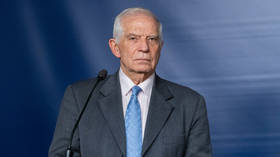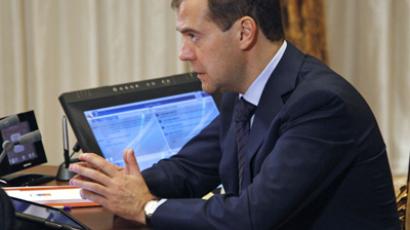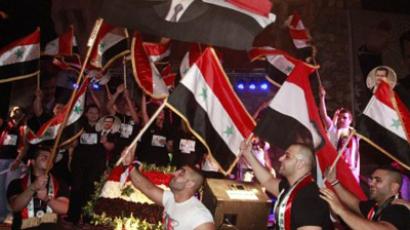Syria's double-edged conflict deepens
RT’s team in Syria reports on the widening gap between the capital, which staunchly supports the Assad regime, and other parts of the country, which oppose it. Meanwhile, the UN is warning of a looming civil war.
Syria’s conflict has already claimed more than 3,000 lives, UN rights chief Navanethem Pillay said on Friday. He called for international protection of civilians in Syria and warned of a possible civil war.RT’s Tesa Arcilla has travelled to Syria to meet with the conflicting sides – the supporters and the opponents of President Bashar Al-Assad.While the Syrian capital looks quiet at the moment, she reports, behind the apparent calm the conflict between government loyalists and the opposition is still in full swing. When RT’s team tried to approach people and talk to them about the conflict, the exchanges turned swiftly to heated debate, revealing that emotions are running high on both sides. “I see that there are opponents, not oppositions. We don’t see who they are yet. Syria is under attack for its stances but we will not give up,” one Syrian told RT. “I wish the opposition would calm down, be rational, and open a dialogue with the regime. I wish the government would accept the opposition and be more open-minded,” says another. But most of the people are still questioning who the opposition is – who is causing this instability? And many of them use the words “armed gangs.” The stance of the government and its supporters is that they are simply people who want to destabilize the country. But it is a different story outside the capital. RT’s team was able to travel to the city of Al Rastan which was the scene of five days of fighting between security forces and anti-government protesters. The government has said they were fighting armed groups. But activists insist they were not armed groups but peaceful protesters backed by defectors from the strong army contingent based in Al Rastan. Tesa Arcila says it is very difficult to verify exactly what happened in the city because people are afraid to talk. President Bashar Al-Assad has said he is working on a political solution to the conflict. He has promised to set up a constitutional committee within days to debate constitutional reform with the opposition. “The dialogue should have a program and a timeline. We must clearly understand what kind of results we want to achieve,” human rights activist Michel Kilo told RT. One of the sticking points is Article 8 of the Constitution which designates the ruling Ba’ath party as “leader of state and society.” Abolishing Article 8 has been a high priority for the Syrian opposition, which says even if a multiparty system is introduced, without the repealing this article, nothing will change.














